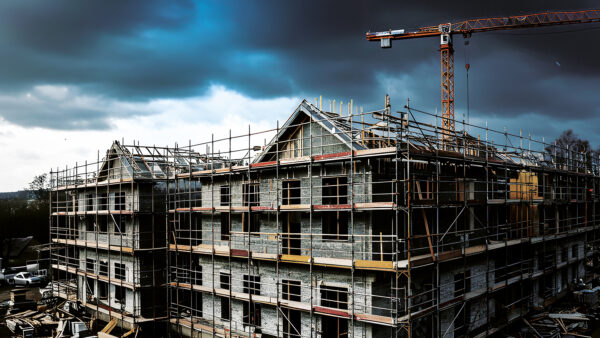For Water Saving Week 2024, Amanda Williams calls for more incentives and tougher targets for water efficiency in the built environment.

It may not feel like it, so soon after the wettest 18 months on record here in the UK, but water is a finite resource and population growth, increasing demand and climate change will affect the availability of future water resources. According to Waterwise, the UK could be hit by severe water shortages by 2050, if water efficiency is not adequately prioritised.
So, this Water Saving Week, we’d like to highlight the role of the built environment industry in this issue, as well as acknowledging some of the challenges that may be acting as barriers. Reducing demand is not the responsibility of just one sector, but the construction industry clearly has a key role to play in increasing the water efficiency of both new and existing homes and other buildings.
This means building new homes to higher standards of water efficiency, including, eventually, water reuse and rainwater harvesting as standard, and working towards water neutrality for developments. It also means taking a whole-building approach to retrofit that also considers water use alongside energy in existing buildings.
Sounds like common sense, right? But there are challenges.
Barriers to adoption include perceptions about the quality of water-efficient products, and concerns they may cost more, as well as supply chain readiness. Product manufacturers need to adopt high standards of product testing and certification to ensure technical and consumer acceptability, and developers need confidence that they are installing items that are high-quality, water-efficient and value for money.
Incentives to developers
While the water industry has introduced schemes to reward developers that go beyond Building Regulations requirements and achieve water neutrality, such as the Thames Water Developer Incentive Scheme, these have gained limited traction and there is no standard approach.
Ofwat has consulted on changes to charging rules to offer stronger and more standardised incentives to developers to encourage them to build new homes that are more water-efficient and with sustainable drainage. The proposal is to require all water companies in England and Wales to offer a financial water efficiency incentive to developers that go beyond Building Regulations water efficiency standards. However, it does not specify either a minimum threshold to trigger the incentive, or its amount.
Policymakers have so far not given this issue high enough priority and more ambition in government policy is necessary. If ambitious water efficiency measures remain no more than an option, the large-scale changes needed to significantly reduce water consumption may not happen.
That’s why I welcome the recent publication of the Future Homes Hub Water Ready report, which calls on government to publish a 10-year roadmap, setting out increasing water efficiency targets implemented through Building Regulations in 2025, 2030 and 2035. This would provide the industry with certainty to invest, innovate and deliver more water-efficient homes.
Water efficiency = energy efficiency
It is high time water efficiency is given equal standing with energy efficiency. After all, it is the most basic need for all life, and projections suggest water scarcity will be an increasing challenge in future. The construction sector clearly has a role to play in not only how it uses water during the construction process, but also designing and creating buildings that are water-efficient for their occupants.
Historically there has been a disconnect between policymakers, the water industry, the construction sector, and product manufacturers, which may have prevented strong action from taking place. The Water Ready report, developed by a cross-industry working group, is a good indication that this is now changing.
Amanda Williams is head of environmental sustainability at CIOB.











